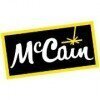
i
The Global Green Company
Filter interviews by
The Global Green Company Interview Questions and Answers
The Global Green Company Interview Experiences
2 interviews found
I appeared for an interview in Jan 2025.
(2 Questions)
- Q1. Asked about basic questions based on resume
- Q2. Asked about technical basic questions about food technology
Production Trainee Interview Questions asked at other Companies
I applied via Recruitment Consulltant and was interviewed before Jan 2023. There were 2 interview rounds.
(1 Question)
- Q1. Technical on Food Industry
(1 Question)
- Q1. HR - Policies, Interpersonal skills
Quality Assurance Interview Questions asked at other Companies
Top trending discussions






Interview questions from similar companies

I applied via Approached by company and was interviewed before Feb 2021. There were 2 interview rounds.

(1 Question)
- Q1. Related to my job profile.
Interview Preparation Tips

I applied via Company Website and was interviewed in Mar 2023. There were 3 interview rounds.

(1 Question)
- Q1. Technical details related to Instrumentation, Electrical , plc, vfd
(1 Question)
- Q1. Discussed regarding company and salary
Interview Preparation Tips

I applied via Campus Placement and was interviewed in Apr 2021. There were 3 interview rounds.
Interview Questionnaire
2 Questions
- Q1. They just asked about the current events which is happening in that moment and some basic technical questions
- Q2. Before you entering the interview room it's better to have a knowledge of current events, when I interviewed they asked MSP (minimum selling price) and farmers protest against the new APMC Act. And some te...
Interview Preparation Tips

I applied via Referral and was interviewed in Aug 2024. There was 1 interview round.
Market sale distribution

I applied via Naukri.com and was interviewed in Apr 2020. There were 4 interview rounds.
Interview Questionnaire
1 Question
- Q1. How are you going to expand the Business if you are given an given an Opportunity?
Interview Preparation Tips
Don't beat around the bush.
Be clear of what you are speaking.
Try share your past experiences and achievements(For Sales People).

I applied via Referral and was interviewed before Jun 2020. There was 1 interview round.
Interview Questionnaire
2 Questions
- Q1. How to increase volume of sale?
- Ans.
To increase volume of sale, focus on customer needs, improve product quality, offer promotions, expand distribution channels, and provide excellent customer service.
Understand customer needs and preferences
Improve product quality and features
Offer promotions and discounts
Expand distribution channels
Provide excellent customer service
Train and motivate sales team
Analyze market trends and competition
Develop strong relatio...
- Q2. How to manage all customer at one time
- Ans.
Managing all customers requires prioritization, effective communication, and efficient time management.
Prioritize customers based on their needs and potential for sales
Use technology to streamline communication and keep track of interactions
Schedule regular check-ins with each customer to maintain relationships
Delegate tasks to team members to ensure all customers are being attended to
Be proactive in addressing any iss...
Interview Preparation Tips

Junior Sales Officer Interview Questions & Answers
G. D. Foods MFG (TOPS)posted on 8 Sep 2022
I applied via Naukri.com and was interviewed before Sep 2021. There were 2 interview rounds.

(1 Question)
- Q1. 1. Question related to day to day work in previous company 2. Some Question on percentage 3. Experience in Distributor handling
Interview Preparation Tips
Wear formals and be clean shave

I applied via Referral and was interviewed before Jan 2021. There was 1 interview round.
Interview Questionnaire
1 Question
- Q1. What do you know about sales and what initiative taken by you to increase sales
Interview Preparation Tips
The Global Green Company Interview FAQs
Tell us how to improve this page.
Interview Questions for Popular Designations
The Global Green Company Interview Process
based on 6 interviews
Interview experience
Interview Questions from Similar Companies
The Global Green Company Reviews and Ratings
based on 76 reviews
Rating in categories
|
Assistant Manager
23
salaries
| ₹5 L/yr - ₹9 L/yr |
|
Production Officer
13
salaries
| ₹3.2 L/yr - ₹4.1 L/yr |
|
Executive Production
12
salaries
| ₹3.8 L/yr - ₹5.8 L/yr |
|
Manager
6
salaries
| ₹9 L/yr - ₹13 L/yr |
|
Officer
6
salaries
| ₹3 L/yr - ₹5 L/yr |

Anmol Industries

Ferrero

Cpf India

McCain Foods
- Home >
- Interviews >
- The Global Green Company Interview Questions










